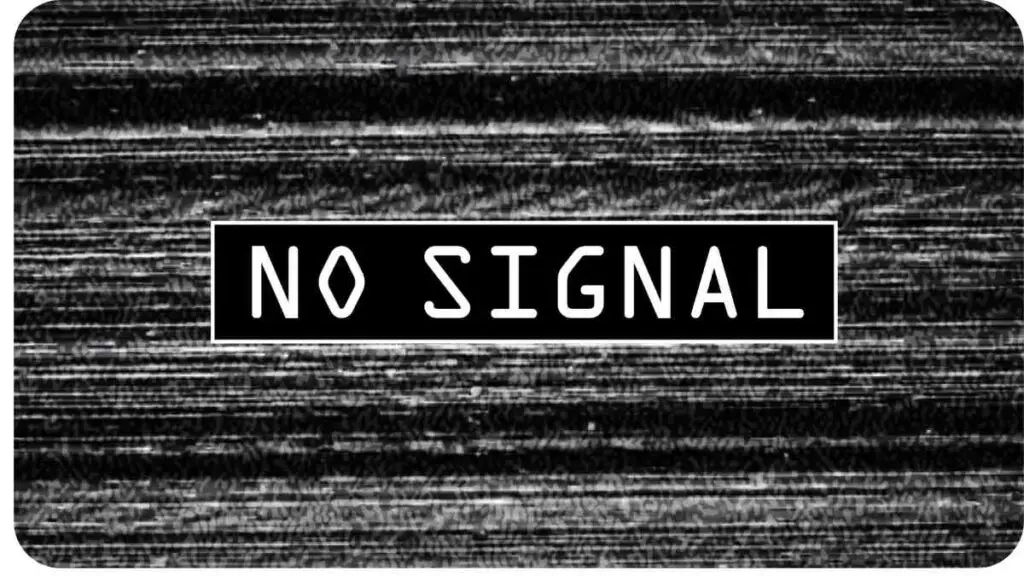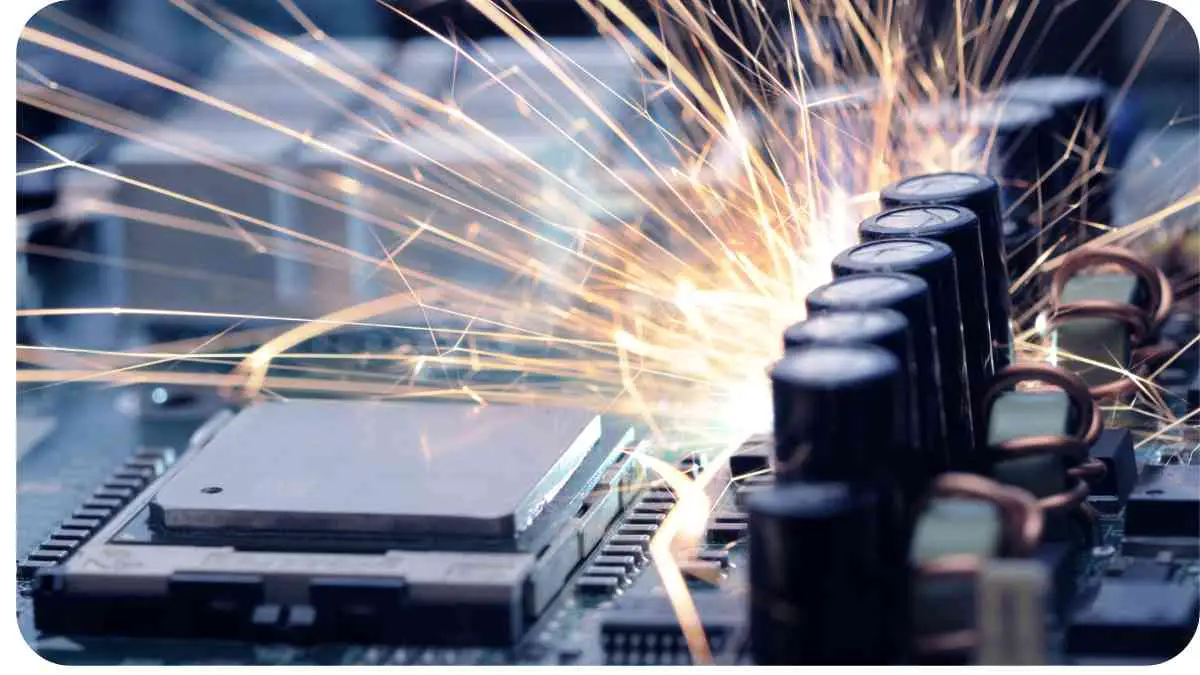Imagine being in an emergency situation, desperately needing help, and your distress signals failing to reach those who can assist you. It’s a nightmare scenario that no one wants to experience.
In this article, we’ll delve into the critical topic of emergency signal failures and how to ensure that you’re seen and heard when it matters most.
| Takeaways |
| 1. Emergency signals are vital in crises. |
| 2. Signal failures can have serious consequences. |
| 3. Regular maintenance is crucial for reliability. |
| 4. Professionals play a significant role. |
| 5. Preparation is key to safety in emergencies. |
2. The Importance of Emergency Signals
Before we dive into the intricacies of signal failures, let’s emphasize why emergency signals are so crucial. They are the lifelines during crises, be it a medical emergency, a car breakdown on a deserted road, or a distress call from a mariner lost at sea. These signals bridge the gap between danger and safety, between despair and rescue.
Lightning strikes can be terrifying in the great outdoors. When caught in a storm, remember to stay safe and learn how to protect yourself from electrical hazards. This knowledge could be a lifesaver.
3. Common Causes of Signal Failures

To effectively address signal failures, we must understand their root causes. There are various factors that can compromise the reliability of emergency signals. These include…
4. Assessing Signal Reliability
Now, let’s discuss how you can assess the reliability of your emergency signals. It’s essential to have confidence that your signals will work when needed most.
One way to achieve this is through regular testing and maintenance, but more on that in Section 7. Let’s take a look at the key factors you should consider when assessing signal reliability.
| Factor | Description |
| Battery Health | Check the condition and charge of your signal’s batteries. |
| Signal Strength | Measure the signal’s transmission range and power. |
| Signal Integrity | Ensure that the signal’s message remains intact and clear. |
| Environmental Factors | Consider how weather and terrain affect signal performance. |
5. Ensuring Signal Visibility
When it comes to emergency signals, being seen is just as vital as being heard. In this section, we’ll explore ways to ensure that your signals are visible when it counts.
Camping can be enjoyable, but it’s crucial to be well-prepared. Explore some helpful camping hacks to make your outdoor experience comfortable and safe. Small tips can lead to significant improvements.
Table: Comparison of Signal Visibility Products
| Product | Features | Pros | Cons |
| Reflective Materials | Highly visible at night | No use in low-light conditions | Limited range of visibility |
| LED Flares | Bright and long-lasting | Battery-dependent | Limited to line-of-sight |
| Signal Flags and Banners | High visibility in open spaces | Wind-dependent | Bulky and less portable |
| Strobe Lights | Intense flashes for maximum visibility | Battery consumption | Limited battery life |
| High-Visibility Clothing | Improves visibility of the wearer | Requires proper maintenance | Limited to personal use |
6. Ensuring Signal Audibility
Being seen is essential, but being heard can be equally critical. Let’s explore how to make sure your emergency signals are audibly effective.
Table: Comparison of Signal Audibility Products
| Product | Features | Pros | Cons |
| Whistles | Compact and easy to carry | No battery or maintenance required | Limited range and sound volume |
| Air Horns | Louder and carry over long distances | Battery-powered | Bulky and require periodic refills |
| Sirens | High-volume sound output | Effective in noisy environments | Require a power source |
| Personal Alarm Systems | Multiple functions in one device | Compact and versatile | Limited battery life |
| Two-Way Radios | Communication along with signaling | Useful for coordination in emergencies | Require multiple units |
In the next section, we’ll dive into the importance of regular maintenance and testing to ensure your emergency signals remain reliable when you need them most. We’ll also provide expert tips to enhance signal reliability further.
In emergencies, knowing how to build a survival shelter quickly is vital. Learn these essential skills to protect yourself from the elements. Shelter is your first line of defense.
7. Maintenance and Testing
Maintaining and testing your emergency signals is not just a recommended practice; it’s a necessity. Regular upkeep and assessment can make all the difference during an emergency. Here, we’ll outline the steps you should take to ensure your signals are always ready for action.
| Maintenance Task | Frequency | Description |
| Battery Check | Monthly | Inspect and replace batteries as needed. |
| Signal Inspection | Before trips | Ensure signals are in working order before any journey. |
| Function Testing | Monthly | Test all signal functions, including audibility and visibility. |
| Cleaning and Storage | As needed | Keep signals clean and store them properly to prevent damage. |
8. Expert Tips for Signal Reliability

As someone with expertise in this field, here are some valuable tips to enhance the reliability of your emergency signals:
- Invest in Quality: Don’t skimp on your safety equipment. Invest in high-quality signals, batteries, and accessories to minimize the risk of failures.
- Stay Informed: Keep up with the latest developments in signal technology and safety regulations. This knowledge can help you make informed choices.
- Practice Proper Maintenance: Regularly inspect, clean, and test your signals. Replace batteries and worn-out components promptly.
- Signal Redundancy: Consider having multiple types of signals on hand. This redundancy can be a lifesaver if one signal fails.
- Signal Training: Ensure that everyone in your group knows how to operate the emergency signals. Practice using them to be ready for any situation.
Access to safe drinking water is paramount in emergencies. When in doubt, refer to tips on troubleshooting questionable water sources. It’s essential to keep yourself hydrated and healthy.
9. Real-Life Scenarios
To illustrate the importance of signal reliability, let me share a personal experience. While hiking in a remote area, my group encountered an unexpected medical emergency. We had to rely on our emergency signal devices to call for help. Thanks to our well-maintained signals, rescuers were able to locate us swiftly, emphasizing how crucial signal reliability can be in real-life situations.
10. Regulatory Standards
It’s important to note that there are specific regulatory standards for emergency signals, depending on your location and activities. Familiarize yourself with these standards and ensure your signals comply with them. This not only ensures your safety but also helps you avoid legal issues.
11. The Role of Professionals
When it comes to addressing emergency signal failures, professionals play a pivotal role. Whether you’re in the maritime industry, aviation, or any other field that relies on emergency signals, experts have the knowledge and experience to ensure your signals are reliable.
In unfamiliar terrain, navigation can be challenging. If your compass seems off, follow advice on handling navigation troubles. Staying on course is critical for your survival.
Consulting with professionals can involve:
- Signal System Design: Experts can help design custom signal systems tailored to your specific needs, taking into account environmental factors, regulations, and the unique challenges of your industry.
- Installation and Maintenance: Professionals can install and maintain your signal equipment, ensuring it operates optimally at all times.
- Training: They can provide training to your team on how to use and maintain the signals properly, ensuring everyone is well-prepared in case of emergencies.
12. Signal Failures: A Costly Consequence
Signal failures can come at a steep cost, both in terms of human safety and financial implications. Let’s break down some of the financial consequences:
- Rescue Operations: When signals fail, rescue operations become more complex, requiring additional resources and potentially leading to higher costs.
- Legal Liabilities: If signal failures result in accidents or injuries, you may face legal liabilities, which can include hefty fines and settlements.
- Business Disruption: For commercial operations, signal failures can lead to business disruptions, affecting productivity and revenue.
- Equipment Replacement: Constant signal failures may necessitate the replacement of equipment, adding to operational expenses.
13. Troubleshooting Signal Failures
Even with the best maintenance practices, signal failures can still occur. Troubleshooting is an essential skill to have in such situations. Here are some steps to follow when dealing with signal issues:
Check Power Source: Ensure that the power source (batteries or other) is functional and properly connected.
Inspect for Damage: Examine the signal for physical damage, loose connections, or corroded components.
Review Settings: Verify that the signal settings are correct and haven’t been accidentally changed.
Environmental Factors: Consider how weather conditions or obstructions might be affecting signal performance.
Test in Different Locations: If possible, move to a different location to see if signal reception improves.
14. Preparing for Emergency Situations
Preparation is key to ensuring your safety in emergency situations. Here are some essential steps to help you prepare:
- Emergency Kit: Assemble an emergency kit that includes not only signal devices but also first-aid supplies, food, water, and other necessities.
- Communication Plan: Establish a communication plan with your loved ones or team members. Ensure everyone knows where to meet or how to stay in contact in case of separation.
- Knowledge and Training: Acquire knowledge about the specific signals and communication devices you’ll be using. Training and practice are essential.
- Weather Awareness: Stay informed about weather conditions, especially when engaging in outdoor activities. Weather can greatly impact signal effectiveness.
- Backup Power: Carry backup power sources, such as spare batteries or portable chargers, to ensure your signals remain operational.
15. Conclusion
In times of crisis, reliable emergency signals can mean the difference between safety and danger, life and death. Understanding the common causes of signal failures, assessing signal reliability, and taking proactive steps to ensure visibility and audibility are all crucial aspects of preparedness.
Remember, the cost of signal failures goes beyond financial implications; it can impact lives. Consulting with professionals, staying informed about regulatory standards, and practicing proper maintenance are steps in the right direction.
By following the expert tips provided and being well-prepared for emergencies, you can greatly increase your chances of being seen and heard when it matters most. Stay safe, stay prepared, and prioritize signal reliability in all your endeavors.
Further Reading
- BBC News – UK Emergency Preparedness: Explore the latest updates and insights on emergency preparedness in the UK, including tips and news on how citizens are staying safe.
- Description: Stay informed about emergency preparedness in the UK with this comprehensive resource from BBC News.
- Citizens’ Handbook: In Case of Danger: Access the official handbook for citizens in case of danger, providing essential information and guidelines to ensure your safety.
- Description: Learn how to protect yourself in emergencies with the official citizens’ handbook, a valuable resource for safety and preparedness.
- SAIC Campus Safety – Emergency Response: Discover the emergency response procedures and resources available on the SAIC campus, promoting safety and well-being.
- Description: Get insights into the emergency response measures in place at the School of the Art Institute of Chicago (SAIC) campus, fostering a secure environment.
FAQs
What are the key components of emergency signal reliability?
- Answer: Key components of emergency signal reliability include regular maintenance, functional testing, ensuring power sources, and complying with regulatory standards.
How can I assess the visibility of my emergency signals?
- Answer: To assess visibility, consider factors like signal type, location, and environmental conditions. Regular inspections and testing are also essential.
What should I include in my emergency kit?
- Answer: Your emergency kit should contain signal devices, first-aid supplies, non-perishable food, water, a flashlight, and essential personal documents.
Are there legal consequences for signal failures?
- Answer: Yes, signal failures can lead to legal liabilities, including fines and settlements, especially if they result in accidents or injuries.
How can I stay informed about weather conditions during outdoor activities?
- Answer: You can stay informed about weather conditions through weather apps, portable weather radios, and by checking weather forecasts before your outdoor activities.

Hi! I’m Hellen James, and I am the founder of Unified Survival. I have a deep passion for the wilderness and everything that goes along with it. I’ve been hiking since I was a child, and I grew up camping in state parks all over the country. But it wasn’t until recently that I learned how to survive in the wilderness.

